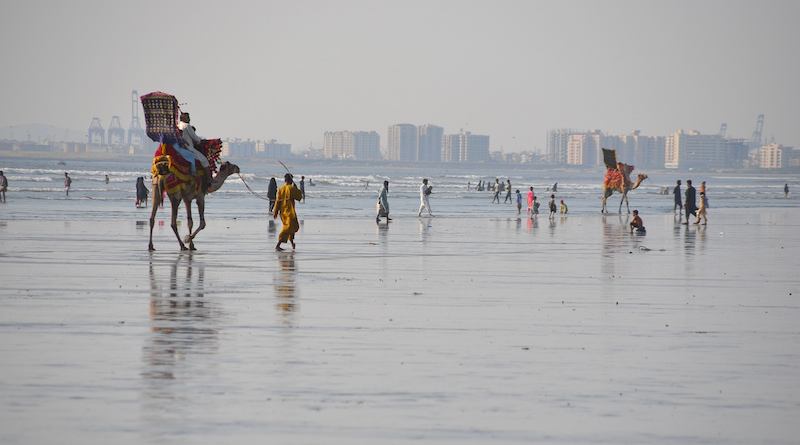Obstacles In Production Of Renewable Energy Sources In Pakistan – OpEd
By Sakina Ahmed
In the modern world, energy is the lifeline of any country. It is important for any country’s development. Industries, agriculture, businesses, and other sectors can run smoothly if there is the availability of energy. Pakistan is a country in dire need of it. The country faces many problems in the energy production sector because of dependency on fossil fuels, loss of transmission lines, power theft, inefficient revenue collection, circular debt, overpopulation, and poor governance. The country faces severe consequences of it in the shape of damage to the industrial sector and agriculture sector, high cost of electricity, poverty, and unemployment. Because of insufficient energy provision, people in Pakistan are already facing many difficulties, which seem to be multiplying in the future. This piece aims to analyze the causes, effects, and pragmatic ways to overcome the energy shortfall in the country.
According to the Ministry of Energy, the country’s total installed energy capacity is 41,557 MW, which has increased from 37,261 MW recently. According to the International Energy Agency, the regular energy mandate of Pakistan will rise to 49,000 MW by 2025. Different sources are used for energy production in the country. Pakistan’s energy mix includes 61% of fossil fuel, 24% of hydropower, 12% of nuclear power, and 3% of renewable energy production. The energy that is produced from fossil fuels like petroleum, natural gas, and coal, sources has the highest share in the energy mix.
The main cause of Pakistan’s energy crisis is the usage of costly furnace oil, diesel, heavy fuel oil, natural gas, and coal. Additionally, overpopulation, energy shortages, bad governance and political turmoil have further deteriorated the situation. Both demand and supply are significantly out of balance due to ineffective energy policy, poor policy implementation, and significant administration difficulties. Sadly, it is unusual for energy generation projects that were started under the administration of one political party to be completed under the administration of another party. Thus, old programs become useless or ignored, and new ones are started with the same goal. It indicates Pakistan’s government administration is unwilling to enhance the energy sector by managing supply and demand.
To tackle the energy crisis, Pakistan, a country that has a larger generation capacity, should concentrate on sources of renewable energy. Because of its geographical location and vast coastline, Pakistan has a tremendous amount of 1100 MW of hydropower generation capacity via tidal barrages, tidal fences, and tidal turbines under the ocean. Since the ocean is 832 times denser than air it generates more electricity because it applies more pressure to turbines. Furthermore, Pakistan’s coastal wind capacity can generate around 50,000MW from its wind corridor which is about 180 km long and 60 km broad. Moreover, solar and wind energy sources are now more affordable and create three times as many jobs as fossil fuel energy sources. Additionally, compared to conventional oil and gas and renewable energy sources, nuclear energy is a reliable, affordable, and clean form of energy that has several advantages. Nuclear power plants are constructed to operate constantly for a long time to offer a reliable and cost-effective means of electricity generation, reducing variations in the energy supply.
Also, the country is blessed with six rivers which can also generate electricity through the run of the river, a system which employs a waterway to direct moving river water towards a turbine to generate electricity. In a run of river, there is no need to store water to produce electricity. In addition, to reduce electricity wastage, the administration must also upgrade the distribution and transmission equipment. The government also should re-introduce Net Metering Program which was initiated in 2015. Under this program, the people produced their electricity through solar panels and the extra energy produced was purchased by the government and added to the grid.
To avoid electricity theft, it is important to draw the public’s attention to this issue, that the intensity of energy shortage is significantly worsened by the domestic stealing of electricity. Also, it is crucial to create restrictive rules and properly enforce them to stop electricity theft. The treatment of thieves needs to be severe to serve as a model for others. Additionally, the general public must switch to power-saving appliances by replacing outdated lightbulbs with LEDs and energy-saving bulbs. Moreover, to meet summertime demand, Pakistan must use energy storage systems such as the reservoir-based hydroelectric dam, which stores energy.
Ms. Sakina Ahmed is an Assistant Research Fellow (Balochistan Think Tank Network, Quetta.

